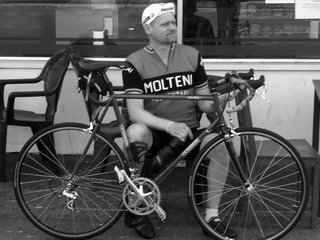A Discourse is a sort of “identity kit” which comes complete with the appropriate costume and instructions on how to act, talk, and often write, so as to take on a particular role that others will recognize. Being “trained” as a linguist meant that I learned to speak, think, and act like a linguist, and to recognize others when they do so. Some other examples of Discourses: (enacting) being an American or a Russian, a man or a woman, a member of a certain socioeconomic class, a factory worker or a boardroom executive, a doctor or a hospital patient, a teacher, an administrator, or a student, a student of physics or a student of literature, a member of a sewing circle, a club, a street gang, a lunchtime social gathering, or a regular at a local bar. We all have many discourses.
How does one acquire a Discourse? It turns out that much that is claimed, controversially, to be true of second language acquisition . . . is, in fact, more obviously true of the acquisition of Discourses. Discourses are not mastered by overt instruction (even less so than languages, and hardly anyone ever fluently acquired a second language sitting in a classroom), but by enculturation ("apprenticeship") into social practices through scaffolded and supported interaction with people who have already mastered the Discourse (Cazden, 1988; Heath, 1983). This is how we all acquired our native languages and our home-based Discourse. It is how we acquire all later, more public-oriented Discourses. If you have no access to the social practice, you don't get in the Discourse, you don't have it. You cannot overtly teach anyone a Discourse, in a classroom or anywhere else. Discourse are not bodies of knowledge like physics or archeology or linguistics. Therefore, ironically, while you can overtly teach someone linguistics, a body of knowledge, you can't teach them to be a linguist, that is, to use a Discourse. The most you can do is to let them practice being a linguist with you. (7)
No arguer, on this line of thinking, learns a new discourse (like the one that this section of English 101 focuses on) by memorizing and using a set of rules. Instead, humans learn to take up new discourses through supported and intentional practice. This means that picking up a discourse involves more work (and more risk) than learning how to place commas correctly. I think this is why we argue. To see better what sorts of ways truths can be related and to add new tools to our personal bags of tricks.
Works Cited
Gee, James Paul. "Literacy, Discourse, and Linguistics," Journal of Education 171 (1989): 5-25.

No comments:
Post a Comment